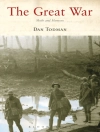In The Art of War, Machiavelli discusses the importance of a strong military organization for the security and success of a state. The book is divided into seven parts and is presented as a dialogue between Fabrizio Colonna, a veteran soldier and strategist, and other fictional characters. Through this format, Machiavelli explores various aspects of war, including soldier training, battle tactics, the use of artillery, and the importance of discipline.
One of Machiavelli's main theses in The Art of War is that war must be well-planned and that leaders must be well-informed and prepared. He emphasizes the importance of continuous training of soldiers and the maintenance of a national militia rather than relying on mercenaries, whom he considered unreliable and motivated only by money.
Machiavelli also addresses the importance of terrain and geography in war, arguing that a good commander should know the terrain he fights on as well as possible to use it to his advantage. He discusses the role of fortune and chance in war, but highlights that preparation and skill can often overcome these unpredictable factors.
लेखक के बारे में
Niccolò Machiavelli (1469-1527) was an Italian writer, diplomat, and philosopher, widely recognized as one of the most important figures of the Renaissance. Born in Florence, Machiavelli held various public offices and was deeply involved in Florentine politics. His direct experience with politics and diplomacy significantly influenced his works, which continue to be studied and debated to this day.
Machiavelli is best known for his works The Prince and Discourses on Livy, but he also wrote an important work on military theory titled The Art of War (in Italian, Dell’arte della guerra). Published in 1521, The Art of War is presented as a dialogue between the author and some of his contemporaries, discussing military strategies and tactics.












